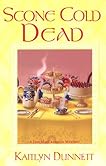 It feels like everyone I know has been watching and commenting on HBOs Tru Blood. I am curious but rather than jump into the show I decided to go straight to the source and read the first Sookie Stackhouse novel by Charlaine Harris that created the show. The book had a huge waiting list at the library and I finally picked it up this week after three months waiting for it.
It feels like everyone I know has been watching and commenting on HBOs Tru Blood. I am curious but rather than jump into the show I decided to go straight to the source and read the first Sookie Stackhouse novel by Charlaine Harris that created the show. The book had a huge waiting list at the library and I finally picked it up this week after three months waiting for it.And can I just say:
How can anyone who has read Twilight honestly think that that book is remotely novel, unique, or otherwise inspired?
Okay so vampires are done, overdone, and redone lately. But the story in Dead Until Dark has so many similarities to Twilight that it is unbelievable!
A couple of examples:
- Vampires "glow" but more so to the main character
- Vampires can do "glamors" to calm people down and make them less tense
- Vampires overall are scary and kinda evil, except our vampire. He's strong and sexy, and REMARKABLY protective
- One of the main characters can read minds - of everyone except the other main character
- The main character has a friend who shockingly is a shapeshifter and must turn into a dog during the full moon
Does no one else see this? Stephanie Meyer started Twilight in 2003. Dead Until Dark first appeared in 2001.
I will say, I think Charlaine Harris' book is a MUCH better story than Twilight. For one, Harris is a much better writer. Second, it is funny and off-color and doesn't take itself very seriously. Third, it sets up a world that is apparently just made for television. There is also some interesting vampire sex - somewhere between Anne Rice and Stephanie Meyer.
If you are standing at the bookstore staring at the overwhelming number of vampire books on the shelves today, pick one of the better books. Pick up Charlaine Harris. Put down Twilight and back away. I imagine I will read more of this series. It's light and fluffy, really quick to read, but amusing. One of these days I may even watch Tru Blood


